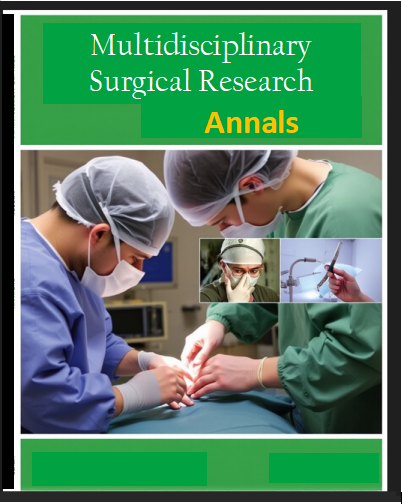C-Reactive Protein–Guided Antibiotic Prescribing in Acute COPD Exacerbations
Keywords:
COPD exacerbation, C-reactive protein, antibiotics, antibiotic stewardship, point-of-care test, randomized trialAbstract
Background: Although only ~50% of acute exacerbations of chronic obstructive pulmonary disease (AECOPD) are bacterial, frequent antibiotic administration leads to antimicrobial resistance. Point-of-care. By identifying patients unlikely to benefit from antibiotics, CRP testing may help guide antibiotic decisions. We compared CRP-guided antibiotic prescribing to conventional treatment in AECOPD.
Methods: A single-center, parallel-group randomized controlled trial at Benazir Bhutto Hospital in Rawalpindi, Pakistan, randomized 160 persons (71% male) with COPD diagnoses and acute exacerbation (1:1) to CRP-guided or standard therapy. Patients with pneumonia or acute antibiotic needs were eliminated. In the CRP group, doctors used point-of-care CRP testing to advise antibiotic prescribing (<20 mg/L: discourage, >40 mg/L: encourage, 20-40 mg/L: consider if purulent sputum). All patients received standard exacerbation treatment. The main outcomes were antibiotic use at consultation and within 4 weeks. The 2 week Clinical COPD Questionnaire (CCQ) and treatment failure (additional antibiotic or hospitalization) were secondary outcomes. Intention-to-treat analysis.
Results: Group baseline characteristics were similar. Patients guided by CRP had significantly decreased antibiotic prescribing at initial consultation (47.5% vs 70.0%, OR ~0.4) and at 4 weeks (57.0% vs 77.4%, OR ~0.3) compared to normal CRP did not worsen health status (CCQ) at 2 weeks (mean difference –0.2, within the noninferiority limit). The rates of treatment failure, exacerbations, and adverse events were similar between groups.
Conclusions: AECOPD antibiotic use was dramatically reduced by CRP-guided medication without impacting short-term clinical improvement. This technique could enhance COPD antibiotic stewardship by safely avoiding unneeded antibiotics. Our findings support primary care studies that incorporate CRP point-of-care testing into exacerbation management protocols, combined with clinician education and patient self-management, to reduce antibiotic misuse and resistance.
Clinical Trials number: gov NCT01234567.




